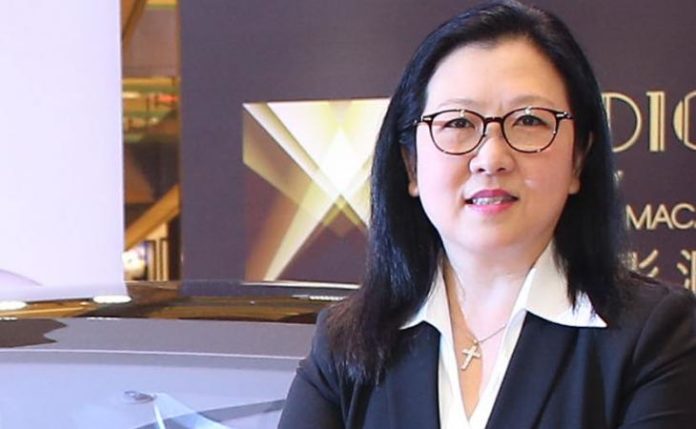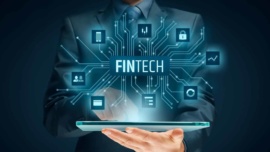American electric car manufacturer Tesla recently announced the opening of its first charging station in Macau at Studio City, while the first batch
of Tesla Model S will arrive in the territory in the next two months. Business Daily talked to Isabel Fan, Regional Director of the manufacturer for Hong Kong, Macau and Taiwan, to know more about the MSARs potential for electric vehicles (EVs), what Hong Kong has done so far in the EV area, how the HKSAR acts as an example for Macau, and what electric has to do to beat petrol.
Nelson Moura
[email protected]
Why has Tesla only now decided to enter the Macau market, given its lengthy presence in Hong Kong?
For us we cant just arrive and open a store. The whole backbone has to change; hundreds of people have to focus to support the new market. Macau is a market we really want to cover to complete the Greater China coverage. We have the resources and the experience from Hong Kong, since the Tesla Model S has been present in Hong Kong since July of 2014. Before that period we had the Tesla Roadster, but there were only 40 of them on the road since it was a limited production. Macau is a stand-out market from Hong Kong, and I believe it is a perfect city for EVs [electric vehicles]; theres a lot of potential here.
How would you describe that potential?
Theres a lot of government support. The market might not be there yet; it needs the industry, better education, and information sharing on EVs so everyone can take advantage. Hong Kong has a tax waiver for first EV car registration, and Macau too, which is good for consumers.
Tesla is seen as a more high-end option. How would you sell it to the Macau public?
I dont consider Tesla a high-end option. The current products are in the luxury sedan and SUV area. The Model S is the medium level production vehicle, and our goal now is to produce the Model 3, which we announced a few months back to cover the mass market. Its price will be half that of the Model S. Thats the long-term goal. Well start production in 2017, delivery for the North American market in the end of that year. The right-hand driving market will maybe be reached in 2018.
What are the challenges for electric vehicles entering a market?
For any new technology wanting to enter a new market, in order to be successful you need two things: a great product and policy support. Our company is only a 13 years old and in the auto industry many brands for internal combustion cars have 80 or 100 years of history. It will take a while and we want to set the example.
Our CEO, Elon Musk wants more people in the industry to sell EVs and for consumers to have more choice in order for more people to switch from internal combustion engines, so he has opened up all the Tesla patents for the industry to leverage. Since we spent so much time with research and development, we think this way the industry can move faster.
The other half of the problem is charging solutions. And in that Tesla is quite unique because we own the solution and we try to implement them practically. However we dont have control over policy, we dont own the land and we dont run the utilities. We own the technology and we can install it if all parties work together. But we need the whole industry to cooperate, more EV players in the market and government and utility companies to make it a viable business.
How was the reception to Tesla in Macau after the website started operating last year?
After we opened the Tesla website last year, the reception was very positive. EV is a new technology with people needing a lot of education about it, and we will need time to build some infrastructure. Also we try to tweak the products a little bit: what we sell in North America will be different from what we sell in Hong Kong or Macau. Its a build-to-order model where we can customise the orders; very different to the other auto companies, where they just sell what they have. The reason for opening the website before the cars arrive is so you can consider and study the models a little bit and change them to fit your own needs. People can change the user interface, language, charging ports and voltage.
Apart from government support, what other advantages does Macau have for EVs?
The Macau people have great forward thinking. And the entertainment and hospitality industry here will need vehicles. In Macau, there are often pollution and congestion issues, with so many cars on the road. If theres a choice I dont think people will stop buying vehicles, and I think Macau is perfect for EVs.
Tesla has very sophisticated technology. Our current car has a total range of 470km, depending on the battery you purchase, and in Macau the daily driving distance of many of my friends is around 10km, so essentially you can charge once a month. Its one of the reasons why Hong Kong became so big for Tesla.
It will need sufficient charging infrastructure, enabling accessibility and convenience in order for people to charge when they go out. Sometimes it can take a while to charge, so this way is the best way to provide a good user experience.
What changes are normally needed in order for a city to be able to accommodate EVs?
More EV charging infrastructure in car parks; government installed public charging; and utility company support in order to enable older buildings to have power so that owners have sufficient power for their home chargers.
How does the Tesla charging system work?
The home chargers are very important for supporting the charging solutions, with people being able to charge at their homes and offices, charging them like an iPhone in their downtime.
The number of hours a medium home charger takes to charge depends on the power source; maybe in one hour you can have enough charge for 40km or 80km. The supercharger can fill half of the battery in 20 minutes and needs one hour for the full charge. Batteries are produced by us and by Panasonic, and different sizes have different ranges too.
So how many charging stations do you think Macau will need to install?
We dont have a cap for charging stations. We invite any party wanting to work with us, whether they want to install a charging station for others or for their internal fleet. That will happen in Macau: where companies will buy EVs for their internal fleet to support their services. And every buyer will already have a charger they can install at home like installing an air conditioner.
The Macau government also has a plan to install chargers in public car parks, so they actually have a short-term plan and a long-term plan. Within a year they plan to install 50 chargers in 10 locations and 400 in four years. And this is a trend that has been seen around the region, in Mainland China and Hong Kong. There are also Tesla charging stations in Zhuhai.
Why did you pick Studio City as the installation location?
Studio City wants to support sustainable energy and before we approached them they already had that policy.
Have you approached other gaming operators?
Were being reached [out to] by other parties [to] consider how to support the industry and the market, but right now I cant announce anything.
Are there plans to install chargers on government-owned land in Macau?
Currently no, since the government already has plans to do so and Macau is a small city. Most chargers will be installed by Tesla Model S [owners] in their homes.
When will the first batch of Tesla Model S be available in Macau?
Were still awaiting authorisation from the government to deliver them. Its an inevitable process that will be done soon. I think the first delivery will take place in the next month or two.
Do you have any estimates for how many Tesla Model S will be sold in Macau?
Tesla usually doesnt do these kinds of forecasts. We prefer to focus on peoples needs for charging and invest in that. We dont have estimates for Macau but were very optimistic about the upcoming momentum for the city. Youll see.
How about in terms of job creation in the city?
Everyone we hire is a local, to build local sales, I.T. and charging infrastructure. Right now it is a small team but it will definitely increase.
Any plans to bring the Powerwall home battery to Macau?
Definitely, but theres no deadline yet since our Tesla Gigafactory only opened on July 29. We will produce market support for North America first, and so far I dont know when it will reach this region, but theres been a lot of enquiries and demand for it the region.
How many Tesla vehicles currently exist in Hong Kong?
Right now I believe there are around 5,000 EVs total on the road – with Tesla composing the majority of them – using around 54 superchargers we have implemented in 12 locations and 104 middle chargers installed in malls, public car parks and commercial buildings.
Was it hard to negotiate with the government and local businesses to install the stations?
In Hong Kong, we negotiated a lot and tried to work together with the government and private sector. We tried to get feedback on how to build better coverage and how we could help the industry.
Would you say Hong Kong is Teslas most successful market?
I would say Hong Kong has the highest density of chargers. As a city, Tesla is doing pretty well there and Hong Kong is on the path to becoming the best city for EVs in the world. In term of success, were doing very well in China; we have major coverage in all the Tier 1 to 2 cities. We even have enough coverage that you could drive a Tesla from the south of China to Tibet.
Why do you think Tesla has become so successful in Hong Kong?
Well, again, forward thinking people, readiness of the infrastructure and government support, not just for Tesla, but for any EV, which they implemented over 10 years ago. When you have the right product in the market and people love your technology, then theyll enjoy it. EV is just a part of Tesla, but at the same time we do intelligent vehicles, since sometimes people dont want to compromise their lifestyle just to be green, they want the total experience.
How do you see Asia in general as a market for EVs?
With Hong Kong setting an example for the region and the world, I think Asia will be very important for EVs. Elon Musk sees the world as a whole, but this region definitely has his attention.
























